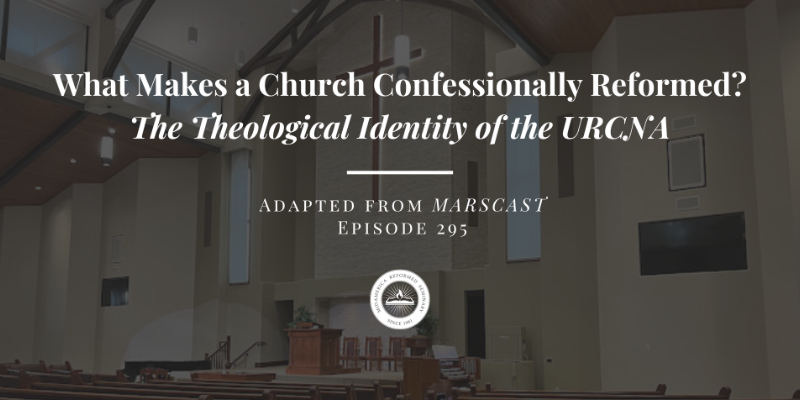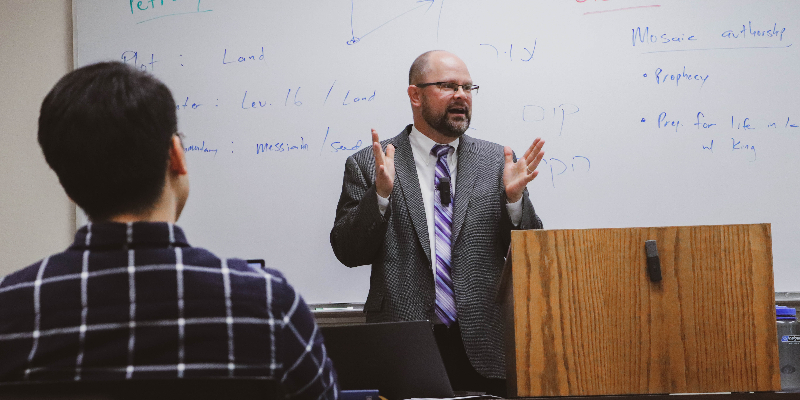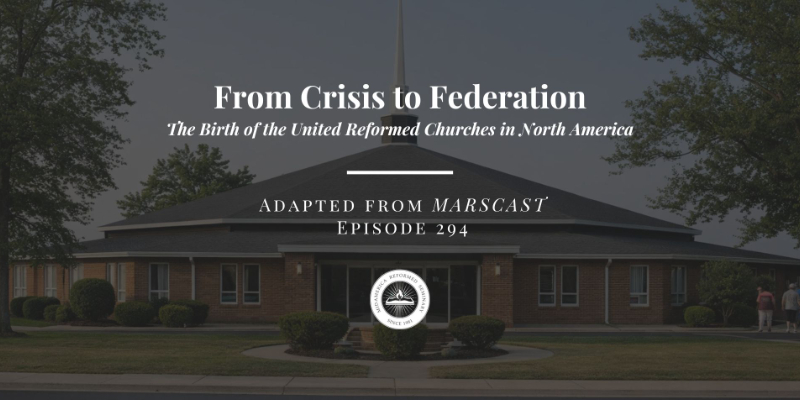
Christian Nationalism
While some in the mainstream media want to apply the label “Christian nationalism” (CN) broadly, encompassing all conservative Christians interested in politics, there’s a narrower use, particularly by Christians who appropriate the CN label for themselves; this latter will be our focus. There are two Reformed approaches to politics relevant to our subject: a two-kingdom, natural law model (NL/2K), which has older and newer versions, and a neo-Calvinist approach, which can be either Kuyperian or some version of theonomic/reconstructionist. Both are used in defense of CN and the allied attempt to reestablish some form of Christendom, though the newer version of NL/2K, of David Van Drunen, Michael Horton, etc., and Kuyperianism, have no sympathy at all for Christian Nationalism. In this piece, I will focus on those taking a reconstructionist or “general equity” theonomic approach, namely, Andrew Torba and Andrew Isker in their work on CN and then Douglas Wilson in Mere Christendom.
“Christian nationalism” is a moniker, then, that some in the mainstream media have been applying rather indiscriminately to many perceived as Christian and politically conservative, whether those parties would agree with that label and self-identify in that fashion. In other words, “Christian nationalism” has been used by many on the political left as a term of opprobrium for those that they see as their opponents on the right. Many who are Christian and conservative in politics would be considered and tagged as “Christian nationalists” by progressives, though those same conservative Christians would not see themselves as Christian nationalists and would disdain the label altogether.
The reason that “Christian” has been used as part of a derisive descriptive is, at least in part, that many white evangelicals (78%) voted for Donald Trump in 2016, and even a greater majority did so in 2020 (81%). This is only marginally more than usual, it should be noted, as white evangelicals have been voting Republican for decades (since Nixon and, especially, since Reagan). And since many of these Trump voters called for border wall building and restrictive immigration policies, they are tagged as “nationalists” on the presumption that they regret the heterogeneity of our current pluralistic, multicultural society and would, in some measure, like to recapture a society in which ethnic and cultural homogeneity prevailed.
The problem with those who proudly self-identify as Christian nationalists is that they want to combine “Christian” with “nationalism” in a way that is clearly inimical to the adjective “Christian.” Their nationalism is the old blood and soil sort of late nineteenth- and twentieth-century German, French, and English nationalism, which not only privileges the culture of the dominant people group but also calls for the maintaining of ethnic purity. How such would work without coercion here in America is inconceivable since we have a highly variegated society, and there’s no way to go “back of it” and to return to some less heterogeneous, more homogeneous day in which America largely reflected a British, Protestant heritage.
While Stephen Wolfe’s The Case for Christian Nationalism, weighing in at almost 500 pages, will doubtless come to serve as a kind of intellectual manifesto for the movement, one suspects that websites like Jon Harris’s or Joel Webbon’s, or much shorter books, like Andrew Torba’s and Andrew Isker’s Christian Nationalism: A Biblical Guide for Taking Dominion and Discipling Nations, will serve for many CN foot soldiers. Most of these, as does Douglas Wilson, adopt a theonomic (of some sort) hermeneutic, not taking the more natural law approach of Wolfe. The Torba and Isker work has “dominion” as a common theme and calls for every man to take such over himself, “over his wife and children,” asserting “our children will be homeschooled…not attending drag shows…not watching Netflix filth…not be tuning in to Fox News or CNN…[or] on Facebook” (70).
History has shown time and again that one generation’s vibrant commitments are often abandoned by following generations, regardless of how hard the committed generations tried. It happened with the Puritans in Old and New England, particularly the latter from the seventeenth to the eighteenth centuries. It happened in the nineteenth century in America as well, particularly after the U.S. Civil War. We should always be as faithful as we can in response to the great grace and love of our God. But we cannot secure the future of generations to come—those who assert such are not apt pupils of history—at all.
Further, the fervor and control that goes into “securing future generations” is part of the very thing that tends to alienate them. Because the above quote is the determination of some now (“no Fox, Facebook,” etc.), it does not mean that it will be shared by the rising generations. I agree that we are to be faithful and leave the results to the Lord, but these types routinely express the assurance that their faithfulness will secure that of future generations, even if it’s often failed to do so in the past. Of course, it’s always and only God’s will and faithfulness that determines the response of future generations. CN proponents call for the reclaiming of the whole nation (by towns, counties, states) by exiting the “beast system completely and build[ing] our own parallel society, lying in wait for their system to collapse which is when the Godly infrastructure we have built will fill the vacuum” (106).
This is what will prepare Christians to “wage a multi-generational spiritual war against the demonic anti-Christian worldviews that are dominating our culture and Western society.” The sons of such stalwarts will have “been through the Classics, all of Greek Philosophy, the entire Bible, and know how to build things with their hands, shoot guns, grow food, hunt, fish, lift weights and start a business by the time they are 18” (107). What if any of those boys prefer to become a mechanic, doctor, lawyer, professor, or even a minister? What are we going to do with all these countless small businesses, many of which will fail? CN advocates may fervently want their vision for the future to come about, but that doesn’t mean that it will. Such planning for the details of future generations has failed all throughout history, including American history.
Finally, and this is particularly interesting, the authors acknowledge that their book “is the result of collaboration and influence from across the Christian faith.” What do they mean by this? That “Protestant, [Roman] Catholic, and [Eastern] Orthodox brothers and sisters have inspired us to publish this book” (108). Whatever differences there may be between these, our authors assert, “We know that we must work together across the faith to combat these wicked [non-Christian] worldviews to defend and grow Christendom” (109).
I do not disagree that there is a proper place for what Francis Schaeffer and others have called co-belligerency, in which we Protestants might make common cause with other traditions, including non-Christian ones, in achieving some common (often civil) goal (like opposing abortion). However, Torba and Isker argue that we can make common cause in defending and developing “Christendom” with Christian traditions that subvert the gospel of Christ alone by grace alone through faith alone. Some bigger project called “Christendom” seems more important than the Christian faith as defined and defended in the Reformed Confessions and Catechisms.
Thus, probably most appealing to many inclined in this direction is the approach of Douglas Wilson, who approves of Christian Nationalism in his latest book, Mere Christendom (83-92), and who argues using a sort of theonomic/Christian reconstructionist hermeneutic. Wilson asserts in his book that “theocracy” is inevitable. He regards the standard that governs a society as its functional sacred writ; since every society is governed by some such standard, he argues, every society is a theocracy of some sort.
Wilson wants the Bible, which actually is sacred writ, to be that standard for our, and every, society. Wilson expects all, not just the church, to adhere to God’s Word, with the civil magistrate enforcing both tables of the law. While all persons everywhere are indeed called to bow the knee to Jesus Christ, in this era, only God’s people will ever do that. If people are forced to submit to the whole of God’s law on some basis other than a renewed will, it will have to be coercive, especially in our current culture.
In this world, as Richard Gaffin notes in his seminal piece (“Theonomy
and Eschatology”), the righteous will continue to suffer, and there is no future golden age before the return of Christ. Wilson, however, calls for “mere Christendom” now, presumably one shorn of the undesirable excrescences of earlier Christendom(s). Requiring the whole of a pluralistic society like ours, much of which is antithetical to God and His Word, to submit to God’s Word, however, highlights the problem. Historian Mark Noll notes in his recent masterwork on the Bible in this country that, though the Bible was in earlier years, “America’s Book,” we have since witnessed a precipitous plummet, what he calls “the rise and decline of a Bible Civilization (1794-1911).”
Wilson espouses “principled Christian conservatism” (58), with politics seeming paramount (98-99): all the “alphabet agencies” of the bureaucracy must be eliminated (EPA, IRS, and the like), term limits and redrawn ballots required, etc. (72-73). The feel of the whole book is that heaven demands, as reflected in the Bible, a Christendom which is a theocratic libertarian’s dream (Wilson self-identifies as a “theocratic libertarian,” 120), and we should all get in line with that. Earlier partisans of Christendom, however, like the Puritans in Britain and the American colonies, were not libertarians (having sumptuary laws, fair price laws, speech/publishing restrictions, prohibiting theatre/fiction, religious holidays, etc.) and did not conceive Christendom as Wilson does.
I suppose Wilson’s theocracy will put an end to all that inconvenient political debate and disagreement that occurs not only with the ungodly but also with fellow believers who don’t think that God mandates libertarianism (even if they prefer it). This is just why C.S. Lewis opposed theocracy: Lewis realized that the worst sort of civil government is one which claims detailed divine sanction, though it really does not have divine sanction as to specifics (119-120). Wilson acknowledges Lewis’s opposition but seems completely to miss his point for it. Calvin also did not find the Bible committed to any form of civil government (Institutes, 4.20.8) or to carrying out Israel’s civil polity (4.20.14). Wilson, contrariwise, seems to think that the form the kingdoms of this world must take enjoys divine mandate.
The most any Christian can personally hope for, though, are political, social, and economic views that are in keeping with the principles of God’s Word, not political, social, and economic positions that embody “thus saith the Lord.” Here’s why: the Bible contains principles that may correspond with different political, social, and economic approaches. It is not the purpose of the Bible to furnish us with a detailed blueprint of many things in life but rather to tell us about the Person and work of Jesus Christ, calling us to faith and repentance and to walk in union with Him in newness of life. Wilson’s approach demands more; his “mere” Christendom is not so mere for all that.
Christians certainly may, and should, seek to have biblical principles, whether expressed implicitly or explicitly (garnered through natural law or the Bible) given societal expression. The need of the hour in our highly politicized and polarized time is for Christians, whether called to preach or simply to witness (I Peter 3:15), to hold forth the hope that is found only in Christ and His gospel. We should not sound like we are promoting just one more political program in a world drowning in partisan politics. The last thing the world needs from us is more hopelessness of that sort. We should, by our word and deeds, testify to a King who stands the kingdoms of this world on their head, a King who came not to be served but to serve and to give His life as a ransom for many (Mark 10:45).

Dr. Alan Strange serves as the Professor of Church History, Registrar, and Theological Librarian at Mid-America Reformed Seminary.
Recent articles




